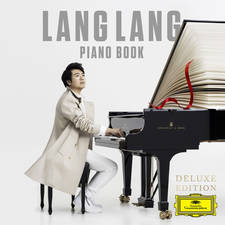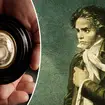Beethoven Is John Suchet's Hero
I suppose young Mozart gets a look in. I’d give a minute or two to Wagner, Mahler, Schubert and a couple of others. But Beethoven… ah, he is the man. This isn’t only my opinion. I was giving my Beethoven talk some years ago, and signing my books on his life afterwards. An elderly gentleman came up to me and said: “I just want you to know, Beethoven saved my life. Twice.” And he walked away without enlightening me any further.
I soon discovered this was not an isolated case. After my first Beethoven book was published, a man in his forties wrote to me explaining how, when he was only 16, he learnt that his brother, who was a soldier, had been killed in Northern Ireland. Six months later his mother died. “Only Beethoven’s music got me through,” he wrote.
So many people I meet have their Beethoven story. You, reading this, probably have one, whether it’s struggling to play Für Elise all the way through as a child, or being shushed by parents as they listened, transfixed, to the opening of the Fifth Symphony – the most famous bars in all classical music. So famous that a make-up lady at ITN, when she asked me who I was writing my books about, said: “Didn’t he write Beethoven’s Fifth?”
Everyone knows Beethoven, and everyone knows one thing about him: he’s the composer who went deaf. Mind you, a taxi driver in Inverness did say to me: “Beethoven? Oh I know him. He’s the one who cut his ear off.”
Beethoven’s deafness is the starting point of his greatness. Never mind how hard it is to write great music in the first place, to write it when you are losing your hearing, and then to write your greatest when it’s gone completely, is beyond being human – it’s divine.
And yet Beethoven himself was far from being divine. These days we’re used to seeing him depicted in a stern painting or as a marble bust or in a sylvan setting, laurel leaves round his head like some kind of god. Yet he was human, with all the failings of a human being. Difficult, argumentative, unreasonable, disloyal… But how nice would you be if you were a musician, and that was all you could be, and you realised you were losing the one faculty more important to you than all the others – your hearing?
What of the music? Well, when I listen to Mozart, I sit back, close my eyes, feel at peace with myself and the world, marvel at the wonderful harmonies and think maybe there is a God after all. When I listen to Beethoven, I’m on the edge of my seat, my knuckles are white, my breathing is shallow, and at the end I explode with energy, ready to take on any task.
You’d prefer the quiet life with Mozart? That’s fine – just don’t ask me to have dinner with you.


























